- Home
- Kelley Armstrong
The Rising dr-3 Page 2
The Rising dr-3 Read online
Page 2
“Hi,” I said. “My name is Joy. I know this is going to sound weird, but I’m trying to get in touch with Maya Delaney’s parents.”
A sharp intake of breath on the other end.
“I know what happened,” I said. “My mom saw it in the paper. We have a cottage near Salmon Creek, so I’d met most of the kids who died, and I wanted to let Maya’s parents know how sorry I am about everything. But no one’s answering the number I have. I remember she said her grandma worked at the heritage center in Skidegate, so I’m sorry to bother you, but this was the only thing I could think of.”
“I’m afraid I can’t help, either,” the woman said. “Her parents are in Vancouver for the funeral.”
“Vancouver?” I thought I’d misheard and she’d said Victoria.
“Maya’s grandmother was hoping it would be on the island, but the people who ran the town are in charge, and I guess . . .” She trailed off. “I know they took the parents to Vancouver after the crash. Maybe they think going back to the island would be too much of a reminder. It’s all such a horrible tragedy. I think everyone’s just relieved someone else is handling the arrangements.”
Yes, I was sure the St. Clouds were happy to make the arrangements. Get the families to Vancouver—farther from us—after the crash. Hold the service there so it would be smaller. Get this charade over with as fast as possible, then whisk them off to parts unknown.
“Have they had the funeral already?” I asked. “I was kind of hoping to go.”
“It’s the day after tomorrow. You should be able to find details in the Victoria newspaper. Maya’s grandmother has a cell phone, but she’s spending the day on Galiano at a friend’s cabin. A retreat before the funeral. She’ll be out of touch while she’s there.”
We’d spent time at my grandma’s friend’s place on Galiano. I could get us there, and it was a lot closer than Skidegate.
THREE
GALIANO IS THE SECOND largest of the Gulf Islands, between the mainland and Vancouver Island. It was an hour ferry ride, after catching a coach bus down to the terminal in Tsawwassen. From the ferry stop, we had a five-kilometer hike to the cabin, which was about as remote as you could get on the island.
By the time we arrived, it was after five. The cottage was a tiny artist’s studio on a small windswept bluff overlooking the strait. There was an empty cabin about fifty meters away, and that’s where we took refuge, hunkering down in its shadow to watch the studio and wait for my grandmother to come out.
Her car was in the drive, and a thin line of smoke rose from the wood-stove chimney, so I knew she was there. I expected her to come out at any moment. It’s a tiny studio and Grandma hates being cooped up inside as much as I do. When we came here for weekends, I’d wake to find her already gone—walking the beach or gathering berries or just sitting on the deck, drinking tea and enjoying the morning. Yet today, despite the rare break of fall sunshine, the doors never opened.
“She’s not coming out,” I said.
This was stupid. Foolish. We should have stayed in Vancouver.
And done what?
That was the question, wasn’t it? And done what? Hide forever? Give up dreams of a reunion with our families and reconcile ourselves to a life on the streets? None of us suggested that. We’d sooner take our chances with the St. Clouds and the Nasts. Corey and I would never surrender the hope of being with our families again. Daniel would—his father was an abusive alcoholic, his mother long gone—but he still wanted to return to some semblance of a normal life.
Corey scanned the quiet road. “There’s no one around. Maya, why don’t you go knock on the door. It’s not like anyone’s going to be watching the place.”
“Are you sure?” Daniel said.
Corey shifted. “Look, I know we need to be careful, but”—he waved a hand around—“we’re in the middle of nowhere. It’s the cottage of her grandmother’s friend. How would we even know she was here? No one’s going to expect this.”
“You’re sure of that? Sure enough to bet Maya’s freedom on it?”
Corey swore under his breath. “I didn’t mean it like that.”
“I know,” I said. “You’re right. We need to take a chance. But it’s almost seven now. It’ll be dark soon. Once it is, I can get to the cabin, get her attention, and get her to let me in.”
Daniel shook his head. “If she sees you through a window, she might react loud enough for anyone watching to overhear. I should—”
“I’ll do it,” Corey said. “First, she knows me the least, so she’ll have the least reaction to seeing me alive. Second, I’m the guy you can most afford to lose.”
“We can’t afford to lose anyone,” I said.
“Let’s not go through this again, okay? I don’t need you guys to make me feel important. You and Daniel got us this far and you’re the ones most likely to get us out. From now on, if someone needs to take a risk, it’s me. Always me.”
We finally agreed that it would be him this time. It was true that Daniel and I had done most of the planning so far. We’d all grown up together in a very small school, where Daniel and I were the class leaders, not because we were awesomely perfect, but because we tended to take charge naturally and the others were happy to kick back and let us shoulder that responsibility. In a crisis, they’d done the same.
Yet everyone had played their part in this ordeal. Often, that role had been the sacrificial lamb. Hayley, Sam, and Rafe had all let themselves be captured so the rest of us could escape. And with every sacrifice they made, the pressure to honor it by saving them grew greater, and I felt less worthy of it.
So we waited for dark. And as we waited, I became more and more anxious. It was already driving me crazy, being this close to my grandmother, with her in there grieving for me. I kept thinking Corey was right, we were being overly paranoid and maybe, in that paranoia, losing our best chance. Maybe it wasn’t just paranoia, either. Maybe we’d become cowards. Unwilling to take a risk if it meant we might be captured, too.
“I need to move,” I said finally as dusk fell.
We were sitting against the neighboring cottage, the long grass hiding us. Nobody had spoken in almost an hour and when I did, the guys both jumped.
“I just want to take a walk.” I glanced down at my trembling hands and clenched them into fists. “I’ll be careful.”
Daniel looked at me, his head tilted, eyes dark, like he wanted to do something or say something. “Okay,” he said finally. Then, voice lowered another notch, “It’ll all be over soon.”
You’ll see her soon is what he meant. I nodded and said I wouldn’t be long, then crawled through the long grass to a stand of forest. Only when I was deep enough in did I rise and begin to walk.
Being in the forest only reminded me of my forest, which reminded me of my parents and our lives there and made me wonder whether we’d ever be able to go back. Almost certainly we wouldn’t go back. Salmon Creek was lost to us. My forest was lost to me.
And it was only then that I truly understood what I’d had—a damned near perfect life. Days spent tramping through the wilderness with my dog, with Daniel, endless idyllic days when we had nothing more to worry about than planning the next school fund-raiser. Even that was hardly stressful—we’d put on an event and the town would open its wallets. The St. Clouds would make a huge donation, and everyone would tell us what an amazing job we’d done. Now I wondered if we could have slapped together a bake sale with tables full of stale Rice Krispies Treats and gotten the same results.
The scientists had wanted us to grow up healthy and confident. Most of all, though, they wanted us to be happy, so that when we discovered the truth, we’d be okay with it.
Would we have been okay with it? No. We’d never have forgiven them for the lie. But could we have reconciled ourselves to a life as research subjects and future Cabal employees? I should say no. Emphatically no. Yet I can see a future where that might have happened. If they’d raised us knowing what had been done
to us and why. And if they’d given us a choice. Accept what we’re offering or you’re free to leave.
I grieved for the loss of my old life, and I worried about my parents and my friends, and I couldn’t even walk it off because the patch of forest was so narrow. So I had to circle, which started to feel like pacing, and only made me all the more anxious. When my palms began to itch, I rubbed them against my jeans, still pacing, until the faint rubbing sound turned into a harsh rasp. I looked down to see the skin on my palms thickening, roughening. Hair had sprouted on the back of my hands. My cheeks itched, too, and when I reached up, I knew what I’d feel—the planes of my face changing, more hair sprouting. I barely had time to think “I’m shifting” when my knees gave way, like someone kicked them from behind. I fell to all fours, heaving, the air suddenly too thin, my chest too tight.
Not now. Please not now.
I closed my eyes, fingers digging into the dry earth, willing the transformation to stop. Pain ripped through me and I gritted my teeth against a scream.
This hadn’t happened before. It never hurt before.
Because you didn’t fight it before.
But I had to stop it. I should be able to stop it.
Only I couldn’t, and the harder I tried the more it hurt, the pain so strong I nearly passed out. If I did, then I’d finish the transformation in my sleep, as I had before. Either I let it happen or I passed out and it happened in spite of me. Either way, it was happening.
I pulled off my clothing. I’d barely thrown it aside before I crashed to the ground and everything went dark. A moment later, I woke up. There was that usual split second of “where am I? what am I?” grogginess before I remembered and leaped to all fours.
I peered around. It was nearly dark now, but my night vision was excellent. I took a moment to adjust to the other changes—four legs, whiskers, a tail. It all makes movement a little odd at first, even the whiskers, pinging as they brushed the long grass.
Sliding through that grass was a lot easier when I didn’t need to crawl. And safer when I blended with the golden stalks. When I neared the neighboring cabin, I poked my head through the grass and let out a soft growl.
Corey peeked out first. He saw me and jumped back. Then Daniel appeared, hand on Corey’s shoulder, murmuring, “It’s Maya.”
“I knew that,” Corey whispered, looking abashed. “But why is she . . . ?”
“I’m guessing she didn’t have a choice.”
Daniel crawled over to me. As he did, I instinctively retreated. He’d never seen me in cat form—I’d only shifted twice so far. While I’d been around humans both times and hadn’t felt any monstrous desire to devour them, I still scrambled away when Daniel approached.
But his scent filled my nostrils and I didn’t smell a threat or—worse—dinner. I smelled Daniel, a scent I still didn’t quite comprehend when I was in human form, but now it felt like a warm wave washing over me, relaxing me, telling me everything was all right, Daniel was here.
Even when I backed away, he kept crawling forward, as if I wasn’t a hundred-and-twenty-pound big cat with two-inch claws and fangs.
“You okay?” he whispered.
I tried to say yes. It came out as a soft chrr-up, like my bobcat, Fitz, makes when he sees me.
Daniel smiled. “That sounds like yes, so I’m guessing you can understand me.”
Another chirp.
“You’ve got some good camouflage there,” he said. “A good nose. Good ears. And a good escape vehicle if you’re spotted.”
I realized what he was thinking. That I could scout the cabin before we sent Corey over. I chirped and tried motioning with my head that I’d circle the studio. I was sure there was no way he’d understand me, but he nodded.
“So you’re okay with that? You’ll take a look around before Corey goes in?”
I bobbed my head. He reached over to pat me, then stopped himself with a chagrined smile.
“Sorry, I probably shouldn’t do that. But it’s the only chance I’ll get to pet a cougar.”
I leaned against his hand and he buried his fingers in my fur, then he took a long look at me.
“It’s pretty damned amazing,” he murmured.
It was. Whatever else the St. Clouds had done to us, this was amazing. We sat there for a minute. Just sat together, me leaning against him, feeling the warmth of his hand, listening to his breathing, slowly calming me down until I was relaxed enough to pull back and jerk my muzzle toward the cabin, telling Daniel I was ready. He gave me one last pat and returned to Corey.
FOUR
I SET OUT THROUGH the long grass. The wind was coming from the north, which was behind me. I couldn’t pick up any traces of human scent on the breeze. That meant there wasn’t anyone outdoors for at least a kilometer. No one directly upwind, that is. To the northeast or northwest? Possibly. So I covered a swath from the road to the water. A very faint scent came when I approached the beach—the smell of people mixed with that of burning wood. Someone with a bonfire up the beach. No one lurked nearby watching the studio—at least not in that direction.
I wanted to cross the road to check over there, but it was paved, meaning my tawny fur would shine like a beacon against the black. I paced along the edge, in the grass, thinking. Then I heard a car. I’d been too preoccupied to notice it until it zoomed around a curve, less than a hundred meters away. I dived deeper into the long brown grass.
The car slowed. I plastered myself against the ground, ears flat against my head, tail curled behind me. I could see the driver. Just a gray-haired guy scanning the roadside.
What if he’d spotted me? Were there cougars on Galiano? Even if there were, seeing one would be a big deal. Vancouver Island had more cougars than anyplace else in Canada, yet people lived their entire lives there and never spotted one of the elusive cats.
If this guy saw me and told someone, it could get back to the St. Clouds or the Nasts. They’d know I’d come to see my grandmother and even if I left now, they’d presume I’d made contact and they’d question her. At the very least, they’d question her. At worst? I started to shake.
It took a moment for me to realize the car had moved on. It had never even come to a full stop, just a mildly curious driver who’d noticed a movement by the roadside. I chuffed in relief, my flanks vibrating with the sound as I lowered my muzzle to my paws.
I had to be more careful. Damn it, I had to be a lot more careful.
When I’d composed myself, I decided I wasn’t crossing that road. Instead, I would circle behind the studio to check the other side. The least exposed route was right along the top of the beach embankment, a narrow strip of long grass.
Again, I screwed up. I’d completely forgotten that there was a path with steps leading from the patio to the beach. Every cottage had one. Luckily, this open strip was barely a meter wide, and I’d only be exposed for a few seconds as I crossed.
I glanced out at the water. No sign of a boat. I peered at the studio. The whole back side was glass, for the artist. The glare of the setting sun against the window made it impossible to see inside. Still, there didn’t seem to be anyone there.
As I crouched to scamper across, a scent wafted past. One that made my legs freeze. My grandmother’s scent, drifting from an open window. I glanced over and inhaled, feeling my sides shake.
So close. God, she was so close. All I had to do was—
No. Absolutely not. If this worked out, she’d know soon enough.
I took another step. A gasp. I turned and saw a figure silhouetted against the open patio door. It squealed open, and the sound jolted me back to life. I dived into the long grass on the other side.
“Maya!”
My grandmother’s voice. I froze again.
Her feet thumped as she ran across the tiny lawn.
“Maya!”
No. This wasn’t possible. I was imagining things. There was no way she could know—
I remembered the story she used to tell me when I was litt
le. To explain my paw-print birthmark and the fact that my birth mother had abandoned me on the hospital steps.
She said my real mother was a cougar who’d had a late summer litter. She’d been an old cat and knew the signs that it would be a long, hard winter and her cubs wouldn’t all survive. So she’d begged the sky god for mercy, and he turned her smallest cub into a human girl and told the cat to take her into the city. She’d left me at the hospital, but before she went, she’d pressed her paw to my hip, leaving me a mark to remember her by.
Had my grandmother known the truth? That I was a skin-walker? Was I wrong to think my parents hadn’t been aware of the experiments?
My gut clenched. I turned to see her standing in the path, her hands to her mouth, her gaze locked on the dark patch of my birthmark.
“Maya.”
She dropped to her knees. I slowly walked to her. When I was close enough, she reached out and grabbed me around the neck, pulling me to her.
“It is you, isn’t it?” she whispered. Then she hiccupped a laugh. “I guess, if I’m hugging a cougar and it isn’t ripping out my throat, that answers my question.”
She hugged me again.
“I’m sorry,” she said. “You must be so angry and so confused. Are the others with you? Daniel and the rest?”
I let out a chirp.
She squeezed me again. “As horrible as this must be, at least you have each other.” She clutched my face between her hands. “If there’s any way for you to visit your parents, please, please do that. Your mother might not believe in the spirit world, but when she sees you, she’ll recognize her child. She’ll know you took the form of the cougar to come and say good-bye.”
Good-bye? Spirit world?
She didn’t know I was a skin-walker. She thought the birthmark meant I had a link to the big cats and that my spirit had taken their form to return one last time. It was like seeing a ghost.
I pulled back and shook my head.
“You can’t go to them?” she said, her voice cracking, tears streaming down her face. “Do you want me to tell them I saw you?”

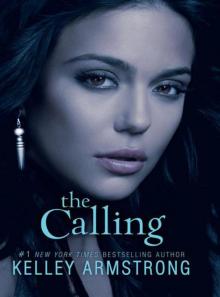 The Calling
The Calling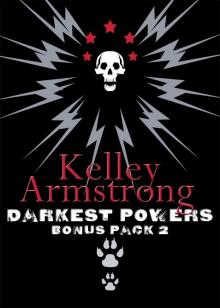 Darkest Powers Bonus Pack
Darkest Powers Bonus Pack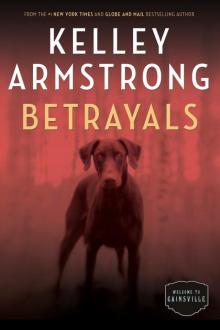 Betrayals
Betrayals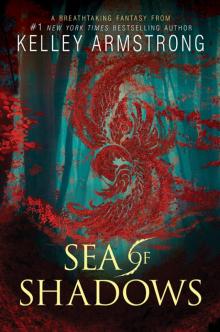 Sea of Shadows
Sea of Shadows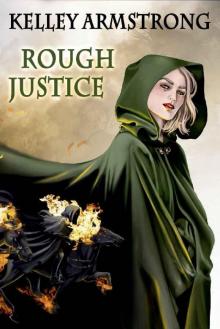 Rough Justice
Rough Justice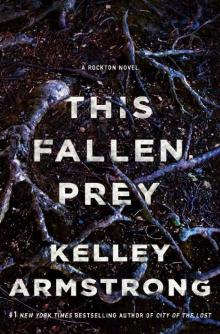 This Fallen Prey
This Fallen Prey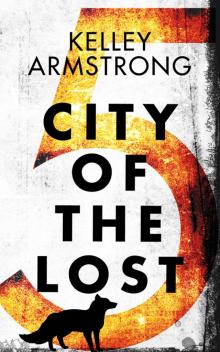 City of the Lost: Part Five
City of the Lost: Part Five Perfect Victim
Perfect Victim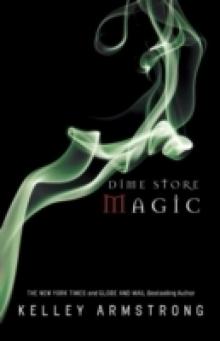 Dime Store Magic
Dime Store Magic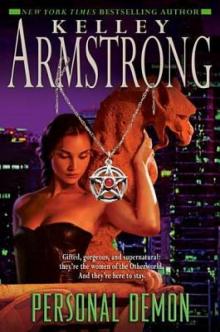 Personal Demon
Personal Demon Haunted
Haunted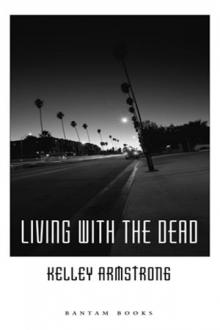 Living With the Dead
Living With the Dead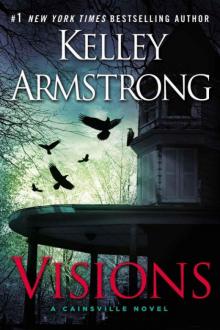 Visions
Visions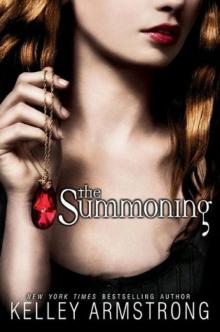 The Summoning
The Summoning Broken
Broken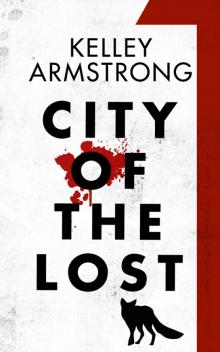 City of the Lost: Part One
City of the Lost: Part One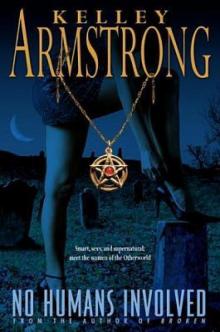 No Humans Involved
No Humans Involved The Awakening
The Awakening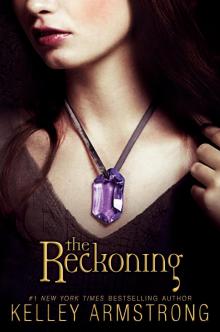 The Reckoning
The Reckoning The Gathering
The Gathering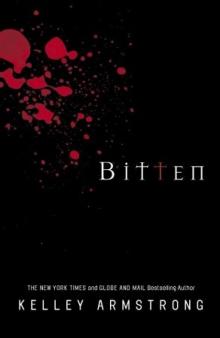 Bitten
Bitten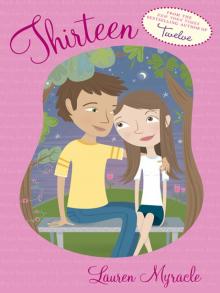 Thirteen
Thirteen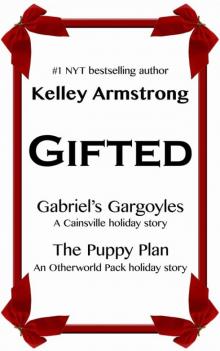 Gifted
Gifted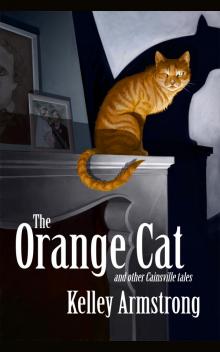 The Orange Cat and Other Cainsville Tales
The Orange Cat and Other Cainsville Tales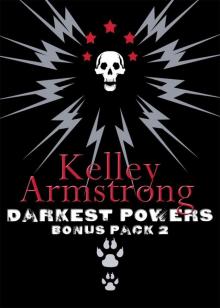 Darkest Powers Bonus Pack 2
Darkest Powers Bonus Pack 2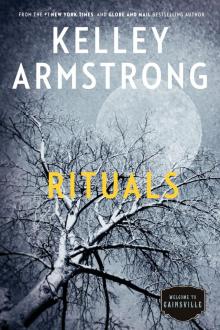 Rituals
Rituals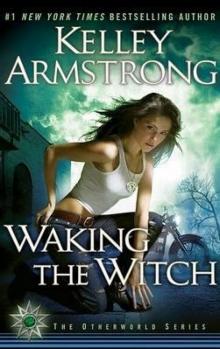 Waking the Witch
Waking the Witch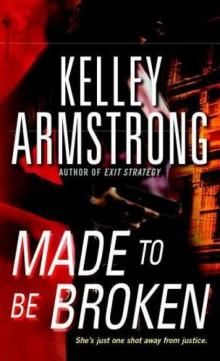 Made to Be Broken
Made to Be Broken Lost Souls
Lost Souls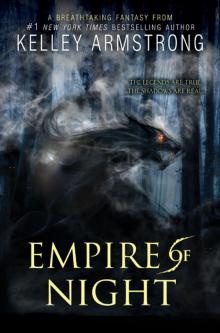 Empire of Night
Empire of Night Wild Justice
Wild Justice Double Play
Double Play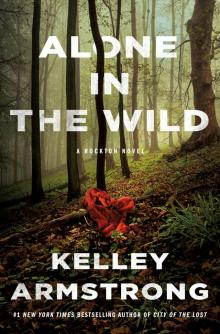 Alone in the Wild
Alone in the Wild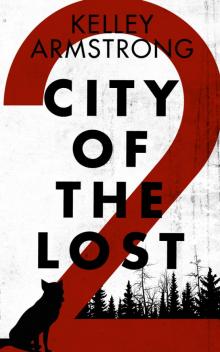 City of the Lost: Part Two
City of the Lost: Part Two A Stranger in Town
A Stranger in Town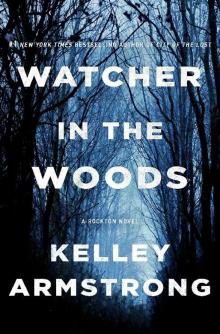 Watcher in the Woods: A Rockton Novel
Watcher in the Woods: A Rockton Novel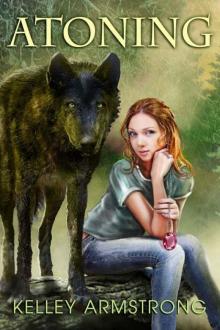 Atoning
Atoning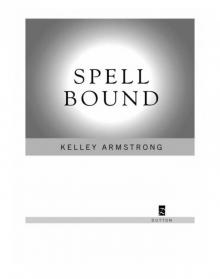 Spellbound
Spellbound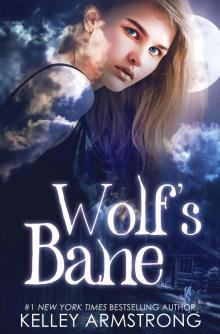 Wolf's Bane
Wolf's Bane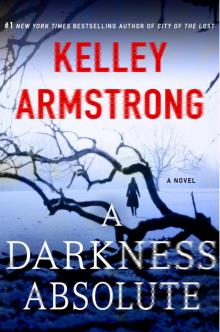 A Darkness Absolute
A Darkness Absolute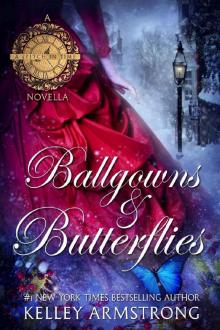 Ballgowns & Butterflies: A Stitch in Time Holiday Novella
Ballgowns & Butterflies: A Stitch in Time Holiday Novella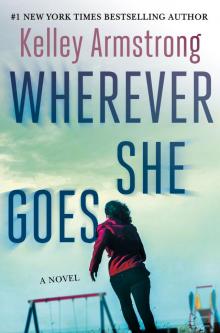 Wherever She Goes
Wherever She Goes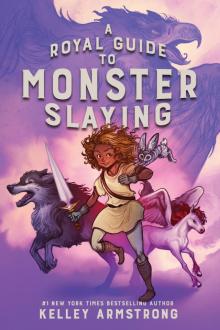 A Royal Guide to Monster Slaying
A Royal Guide to Monster Slaying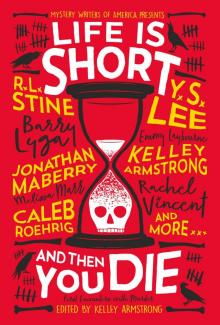 Life Is Short and Then You Die
Life Is Short and Then You Die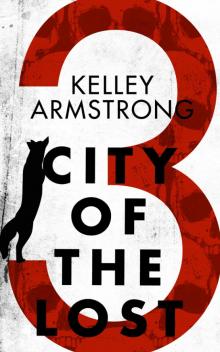 City of the Lost: Part Three
City of the Lost: Part Three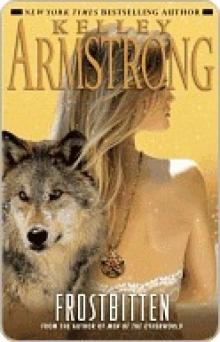 Frostbitten
Frostbitten A Stitch in Time
A Stitch in Time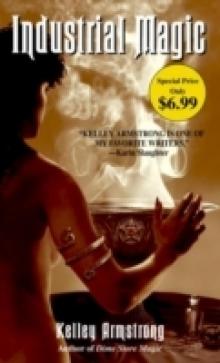 Industrial Magic
Industrial Magic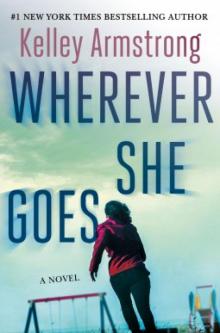 Wherever She Goes (ARC)
Wherever She Goes (ARC)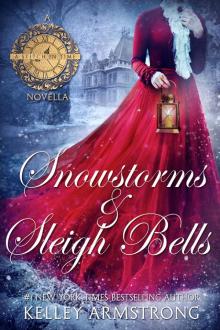 Snowstorms & Sleigh Bells: A Stitch in Time holiday novella
Snowstorms & Sleigh Bells: A Stitch in Time holiday novella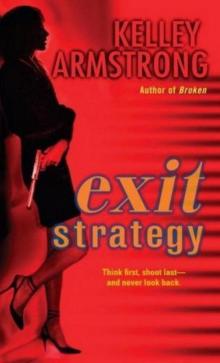 Exit Strategy
Exit Strategy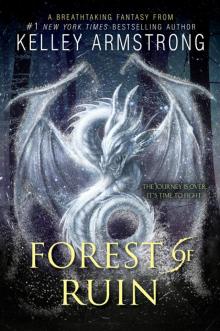 Forest of Ruin
Forest of Ruin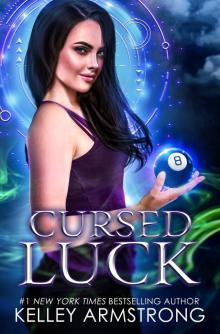 Cursed Luck, Book 1
Cursed Luck, Book 1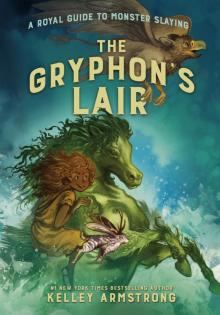 The Gryphon's Lair
The Gryphon's Lair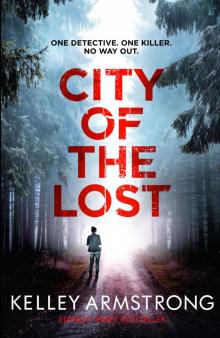 City of the Lost
City of the Lost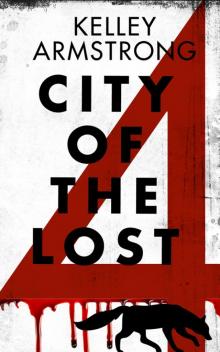 City of the Lost: Part Four
City of the Lost: Part Four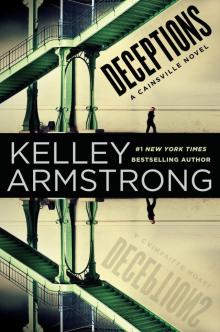 Deceptions
Deceptions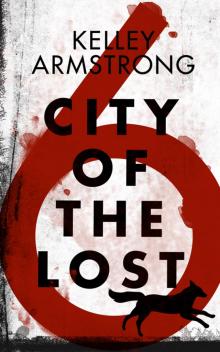 City of the Lost: Part Six
City of the Lost: Part Six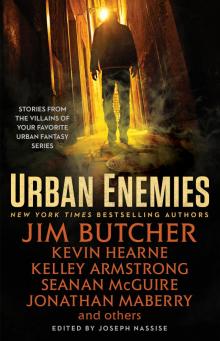 Urban Enemies
Urban Enemies Stolen
Stolen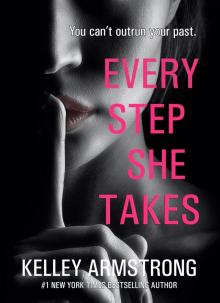 Every Step She Takes
Every Step She Takes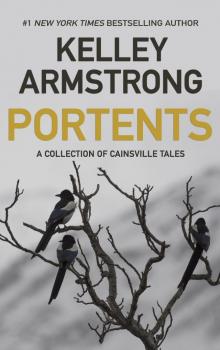 Portents
Portents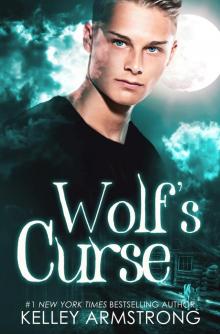 Wolf's Curse
Wolf's Curse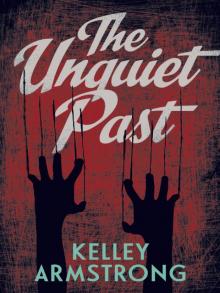 The Unquiet past
The Unquiet past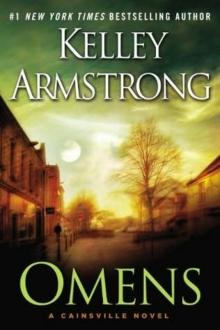 Omens ct-1
Omens ct-1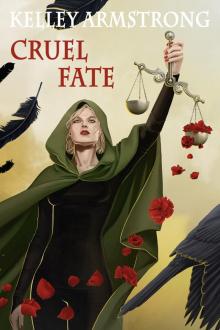 Cruel Fate
Cruel Fate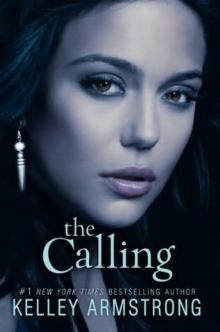 The Calling dr-2
The Calling dr-2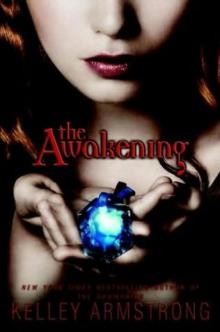 The Awakening dp-2
The Awakening dp-2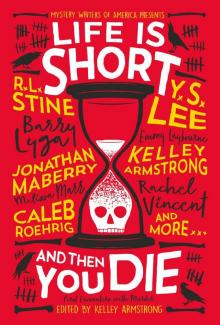 Life Is Short and Then You Die_First Encounters With Murder From Mystery Writers of America
Life Is Short and Then You Die_First Encounters With Murder From Mystery Writers of America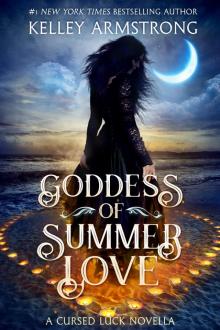 Goddess of Summer Love: a Cursed Luck novella
Goddess of Summer Love: a Cursed Luck novella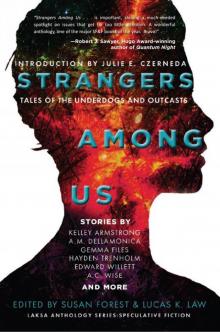 Strangers Among Us
Strangers Among Us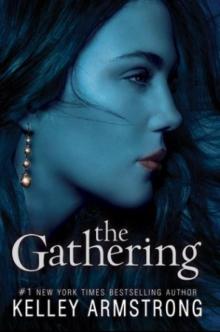 The Gathering dr-1
The Gathering dr-1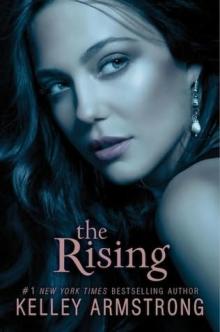 The Rising dr-3
The Rising dr-3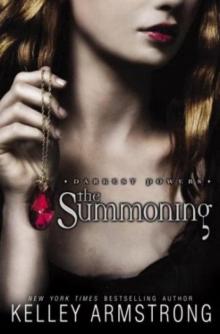 The Summoning dp-1
The Summoning dp-1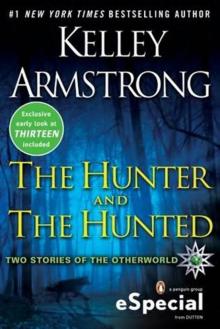 The Hunter And The Hunted
The Hunter And The Hunted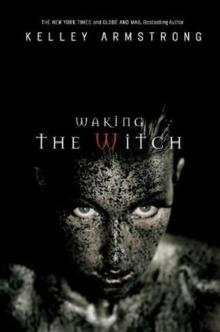 Waking the Witch woto-11
Waking the Witch woto-11